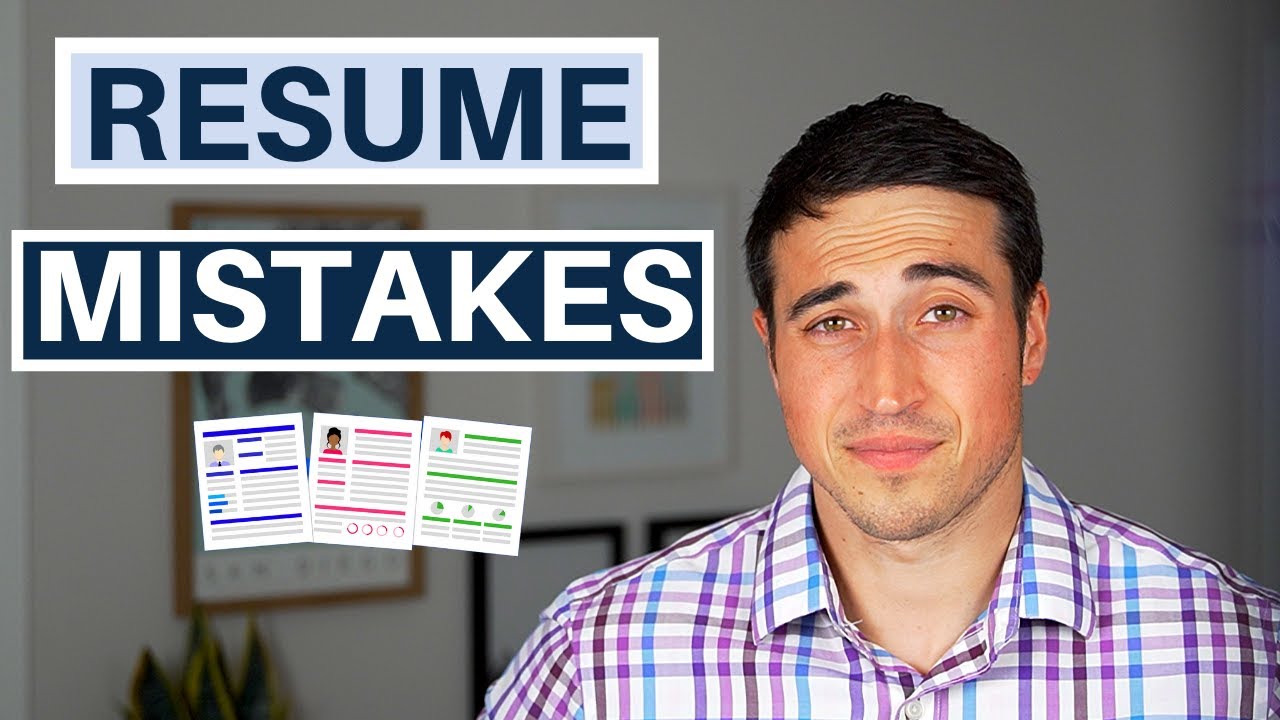
The Biggest Commercial Real Estate Resume Mistakes (& How To Fix Them)

Hiring in the real estate industry is extremely competitive, and with your resume being the first look that a potential employer sees when evaluating you for a role, there is a very limited opportunity for job applicants to make a good first impression when their resume hits HR or a hiring manager’s desk.
Through running the Break Into CRE Academy platform for the past few years, I’ve been able to see quite a few data points through reviewing member resumes, and there are some pretty common pitfalls that people tend to get tripped up with when putting together their professional experience and education on paper.
So, in case you have any of these things on your resume already or you just want to make sure you don’t add these things as you’re making edits in the future, this article will break down 5 points I’d recommend taking off of your real estate resume right now if you have them, and what to add in their place.
If you’d prefer to watch the video version, you can watch that here:
With an average of 250 resumes submitted for each corporate job posting according to Glassdoor, presenting yourself as the best candidate for the role you’re applying for in the most concise, efficient way possible is more important than ever today.
So in this article, instead of the traditional advice around things to add to your resume, we’ll walk through five things that could actually be hurting your chances of landing interviews and getting through that first round of resume screenings, and what to add to your resume instead to strengthen your application and chances of landing a role.
Proficient in Microsoft Office
Point number one on this list, and the thing I tend to see most often on Break Into CRE Academy member resumes, is a statement or bullet point around a general proficiency in Microsoft Office.
In most cases, adding bullet points about your basic ability to use programs like Microsoft Word, Excel, and PowerPoint is just wasted space on a resume, because these are skill sets that are assumed to be a given when you’re applying for real estate analyst and associate roles.
In most cases, basic proficiency isn’t even what companies are looking for. Instead, these employers are seeking out candidates that have advanced skill sets in these programs, specifically Microsoft Excel.
And the best way for you to communicate that you do have these advanced skill sets is not to write them in generic bullet point fashion, but to actually demonstrate these with your on-the-job experiences you’ve had in the past where you’ve used these programs successfully.
What To Add Instead
In a real estate context, this could mean replacing those generic Microsoft Office bullet points with a new bullet point within your work experience, walking through a complex project you completed requiring an advanced knowledge of Excel, or projects or responsibilities where you were tasked with using PowerPoint to create and run presentations.
Anyone can write “Proficient in Microsoft Office” on their resume, but it’s another thing to describe your experience working in the software and actually demonstrating your skills with an example.
If you just have “Proficient in MS Excel, Word, and Office” on your resume, I’d recommend taking this off. Instead, replace this with one or more specific projects you completed or responsibilities you had using these programs, and you’ll be in much better shape.
Technical Skills Unrelated To The Position You’re Applying For
Once you’ve cleaned up any generic Microsoft Office language, the next step is to move on to your Skills section.
And in your Skills section, the next thing I’d recommend taking off your resume is any work-related skill that is not directly related to the position you’re applying for.
While it’s great to have hobbies or side projects, telling an employer you’re an advanced user of Adobe Photoshop, you can run a Shopify store, or you’re proficient in HTML and CSS isn’t going to paint the picture for an employer that you can analyze real estate deals and build pro forma models, and this can actually hurt you more than it can help.

Companies are looking for people who can come into a role from day one and perform, but also people who know what they want from a career perspective and are committed to the real estate industry long-term.
The more unrelated skills and abilities you highlight that are related to other careers, the more unsure you appear about your future in the real estate industry beyond the role you’re applying for. And with that, questions might start to come up about your ability to grow and contribute as a long-term hire for the company.
What To Add Instead
Instead of adding a laundry list of unrelated skill sets and abilities, try replacing these bullet points with specific skill sets you have that are directly related to the position you’re applying for.
For most real estate analyst roles, the most impactful skills you can add are going to be your real estate financial modeling abilities. This includes things like real estate pro forma modeling, real estate equity waterfall modeling, real estate development modeling, as well as your experience with ARGUS if you’re applying for a company that works on office, retail, or industrial deals.
The goal of a resume is not to throw everything you’ve ever done on paper, but to demonstrate to the employer the professional that you are and why you’re the right fit for the job.
And by cutting out the “fluff” of unrelated skills and software knowledge, you create more room for the things that do matter, and paint a clearer picture as to what you can bring to the table from a real estate-specific perspective.
Your GPA
Once you have your generic Microsoft Office proficiency and unrelated skill sets off your resume, the next step is to move to your education section. And within your education section, the next thing I’d recommend removing from your resume (in almost all cases) is your GPA.
This is a tricky one, because this can hurt you on both sides of the spectrum.
If your GPA is low, this might cause an employer to make an incorrect assumption about either your intelligence level or your work ethic, neither of which will help your case to land an interview.
But if your GPA is high, if you’re more than just a few years out of school, this might also lead the employer to believe that you’re still hanging your hat on your college academic performance, and that academic performance hasn’t necessarily translated to real-world success.

The only two times I’d really recommend adding your GPA to your resume is if that GPA number is around 3.7 or higher, and you’re either still in your first job out of school or you’re applying to your first position after college and have very limited work or internship experience.
What To Add Instead
Instead of your GPA, a more impactful point to add under your college or graduate school education is any sort of leadership roles you held, or an organization you were involved in that is directly related to the real estate industry.
If you were involved with your school’s real estate or finance association, or you competed in a case study competition that required you to run an analysis on a live real estate investment or development project, or you held a leadership role in an organization that shows your ability to manage a team, these would all be helpful things to add in place of your GPA.
Again, the goal here is not to show how smart you are, but how well you can do the job the company needs help with today. These real-life, practical experiences will tell that story much more clearly than the grades you received on purely academic coursework.
“Buzzwords” To Describe Your Personal Traits & Characteristics
Once you’ve removed your generic Microsoft Office proficiencies, unrelated skill sets, and your GPA, the final thing I’d recommend taking off of your resume is any “buzzword” used to describe yourself, specifically generic traits and characteristics.
While employers might be looking for candidates with a strong attention to detail and ability to work under tight deadlines, they’re looking for people who can show they have those characteristics, not people who can just type that out on a resume.
Bullet points along the lines of “Hard Working”, “Team Player”, “Strong Communication Skills,” or anything else that doesn’t directly speak to a hard skill that you have should be deleted from your resume.
What To Add Instead
Similar to the point on Microsoft Office mentioned earlier in the video, these should be replaced with on-the-job examples of how you exemplify these characteristics.
If you led or managed a team, if you completed a significant project under a tight deadline, or if you made presentations to investors or clients for important projects, these are the things that are going to let an employer know you have those characteristics.
These are the things that will set you apart from the competition who might just be saying they have these traits, without any hard data or experiences to back that up.

Remember, the goal of the resume is to communicate as efficiently and effectively as possible that you are the clear fit for the job you’re applying for.
The more you can clean up your generic language and add impactful examples in its place, the better your chances are of making it past the application phase and into the interview round.
$100 Per Word
One of the most valuable pieces of resume advice I’ve ever heard is to treat each word on your resume as if it costs you $100. If it doesn’t concisely add to your story and doesn’t clearly show why you’re the right fit for the job, it doesn’t belong on the paper. Period.
How To Make Your Resume Stand Out
If you’re looking to make the move into commercial real estate this year and want some additional help with what should (and shouldn’t) be on your resume, make sure to check out Break Into CRE Academy, which includes sample resume templates, coursework to help you clean up your resume and LinkedIn presence, and one-on-one, email-based career coaching to to help you take the first (or next) step in your commercial real estate career.
Good luck on your applications!


